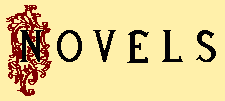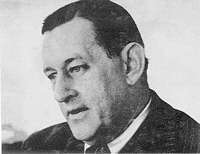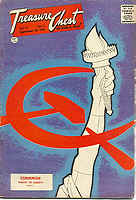



Don't write me, I know that all those other categories are novels as well. But these writers are something special.
Those Wise Teacher Guys at school have taught you that, in a novel, a character ought to change because of what happens to him. I don't agree.
Robert Louis Stevenson is on my side here. He makes something happen to a character and the character reacts after his own fashion.
The same goes for P.G. Wodehouse; just as interesting.
>
Leo Tolstoi
This guy was such a great writer, you have to admire those that dared write another novel after he'd brought the form to perfection.
War and Peace I reread every five years; at least.
Alexander Solzhenitsyn
Compared with him, Erich Kästner had an easy time. You may feel he was more than a novelist, and of course you're right.
But, not wanting to skip him for any price, I have to put him in some category; and his novels are just as strong as the Gulag Archipelago



 . Think of Cancer Ward, August 1914 and One Day in the Life of Ivan Denisovich.
. Think of Cancer Ward, August 1914 and One Day in the Life of Ivan Denisovich.I started reading him because somebody mentioned that last book as belonging in the same range as
George Orwell's 1984 and Aldous Huxley's Brave New World. Not really easy to figure why, but I'm still grateful for the tip.
John Steinbeck
Seems to be out of fashion these days; for him, no problem since he's dead. But it is a pity. He started out as a biologist (like me), and naturally I have a soft spot for him. (We both flopped in that way of life, too). I feel there's still a lot for us in what he has to tell.
There's something I have to check out. While Schulberg (below), Chaplin and various other very decent people were pestered by the McCarthy commission, Steinbeck doesn't seem to have been bothered. Why not? Was he too big a name? Wasn't Chaplin?

John O'Hara
Another great, and popular, novelist you hardly ever hear about anymore.
Favorite quote (to a second hand car dealer):
Will you kiss me? I like to be kissed while I'm getting screwed.
J.D. Salinger
I wonder how many still read him, but The Catcher in the Rye remains a marvelous book.
Then, he went on to Franny and Zooey, full of the Zen approach to life (which is okay with me, but not fanatically)
and Raise High the Roof Beam, Carpenters, even more so. That's all he wrote.
I did manage to download some of his earlier works which he did not want published.
My personal idea is, the guy made his living as a teacher and didn't need his novels to be hits (they still were just that, at the time).
There's a substantial difference between that and really not caring if people like your stuff—my sad case.
Try his 9 Short Stories.
Herman Wouk
Apart from his novels on WWII, still relatively popular, and for good reasons, you should read Wouk's books on Israel; like The Hope. They completely changed my ideas about what's going on there, giving an insight that's far removed from the highly successful Arab propaganda. Then, there are Slattery's Hurricane, in the Ernest K. Gann vein, and Don't Stop the Carnival, in which he shows a really good feeling for what's going on in places like where I live. And don't forget The Caine Mutiny.
Ben Hecht
Here's a sarcastic insect for you. A newspaper man and, as such, suspect, maybe? But so was H.L. Mencken.
He had the goods about Hollywood. Read the howler Concerning a Woman of Sin, about a big Hollywood hit
with the same title, which turns out to have been written by a girl of seven
(or six—I'm not giving anything away, not really). Hilarious.
He also wrote the screenplay for Alfred Hitchcock's Freudian thriller
Spellbound (a slip, that; I've been fully fooled by Fraud myself)
and the very caustic, very funny Nothing Sacred.

Budd Schulberg
Second generation Hollywood bloke. He has worked with F. Scott Fitzgerald,
which he touches on in The Disenchanted, where he tells FSF was unable to write anything but perfect lines.
Best known can only be What makes Sammy Run? Some people (like me) may have problems with the fact that he
sangfor
the infamous McCarthy commission; but so did Sterling Hayden who nevertheless is somewhat of a folk-hero in left-leaning circles.
Then there are On the Waterfront, Some People in the Crowd and the completely different Sanctuary V.
F. Scott Fitzgerald is not to be found on this page, though I am fond of his Pat Hobby stories—on Hollywood; and especially
Three Hours Between Planes which never fails to strike me just as hard as the last number of Schoolboys in Disgrace
(drawings of a left-leaning circle, seen from front \, from back / and efficiently from left and right O)
Elia Kazan
The story is, nobody in Hollywood let him make a movie anymore, so he wrote a novel America, America and, lo and behold,
they let him film it. He went on to write several more, but no more such luck. So he had acquired the habit and just wrote on.
I don't like all of his work; that goes for his movies as well. Did you ever see A Tree Grows in Brooklyn? Gimme a break.
But it's always good and solid. In fact, most of his novels read like classics.
 |
 |
 |
 |
 |
 |
SEARCH this site or the Web

copyright notice
all material on this site, except where noted
copyright © by harrie verstappen , curaçao
reproduction in any form for any purpose is prohibited
without prior consent in writing